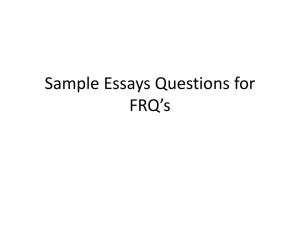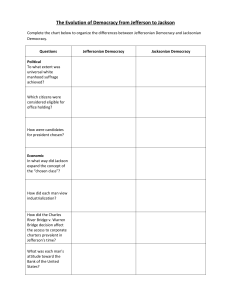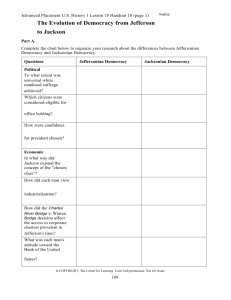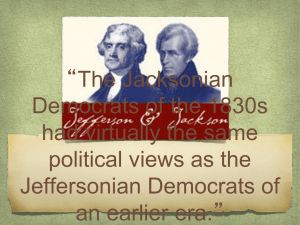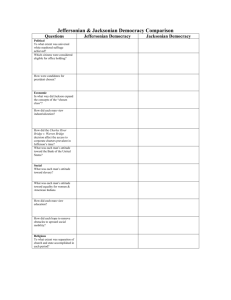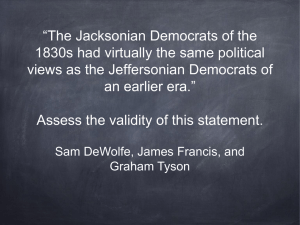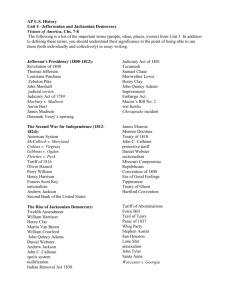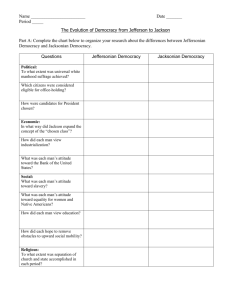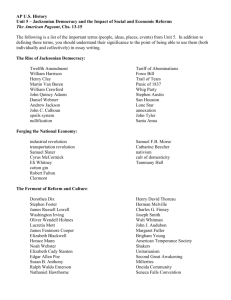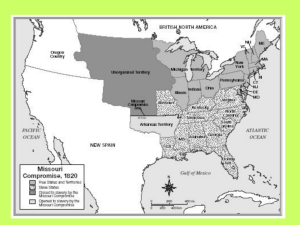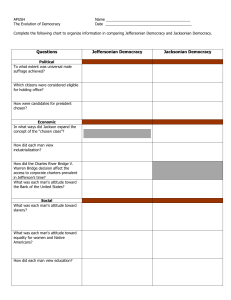Jefferson vs. Jackson Comparison Chart
advertisement
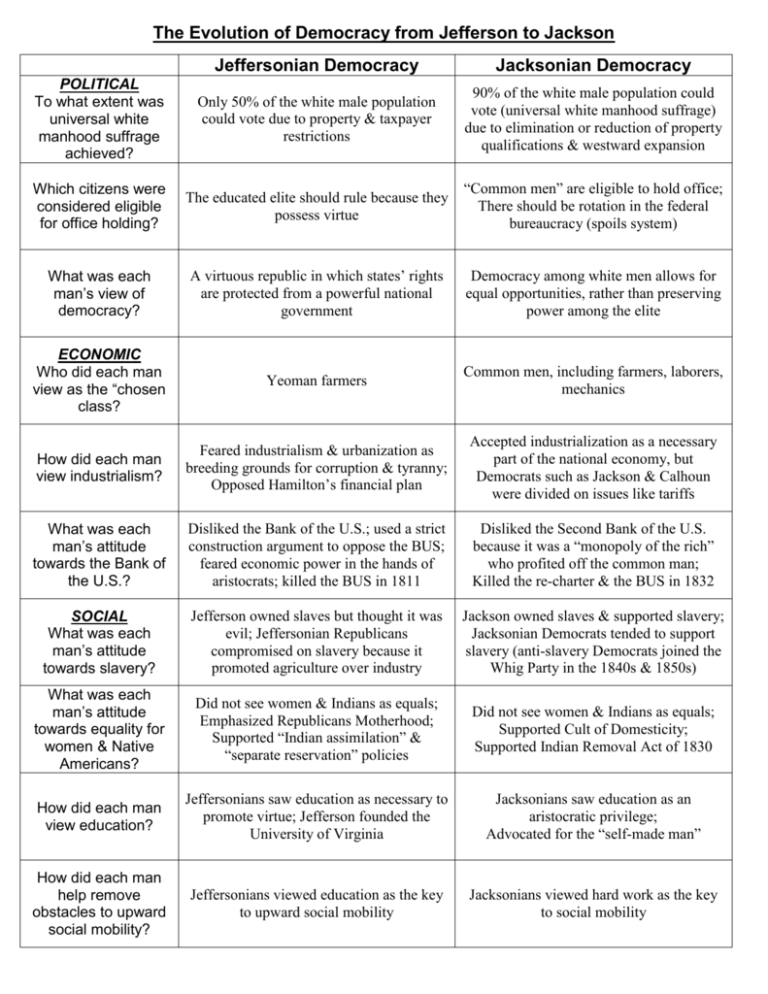
The Evolution of Democracy from Jefferson to Jackson Jeffersonian Democracy Jacksonian Democracy POLITICAL To what extent was universal white manhood suffrage achieved? Only 50% of the white male population could vote due to property & taxpayer restrictions 90% of the white male population could vote (universal white manhood suffrage) due to elimination or reduction of property qualifications & westward expansion Which citizens were considered eligible for office holding? The educated elite should rule because they possess virtue “Common men” are eligible to hold office; There should be rotation in the federal bureaucracy (spoils system) What was each man’s view of democracy? A virtuous republic in which states’ rights are protected from a powerful national government Democracy among white men allows for equal opportunities, rather than preserving power among the elite ECONOMIC Who did each man view as the “chosen class? Yeoman farmers Common men, including farmers, laborers, mechanics How did each man view industrialism? Feared industrialism & urbanization as breeding grounds for corruption & tyranny; Opposed Hamilton’s financial plan Accepted industrialization as a necessary part of the national economy, but Democrats such as Jackson & Calhoun were divided on issues like tariffs What was each man’s attitude towards the Bank of the U.S.? Disliked the Bank of the U.S.; used a strict construction argument to oppose the BUS; feared economic power in the hands of aristocrats; killed the BUS in 1811 Disliked the Second Bank of the U.S. because it was a “monopoly of the rich” who profited off the common man; Killed the re-charter & the BUS in 1832 SOCIAL What was each man’s attitude towards slavery? Jefferson owned slaves but thought it was evil; Jeffersonian Republicans compromised on slavery because it promoted agriculture over industry Jackson owned slaves & supported slavery; Jacksonian Democrats tended to support slavery (anti-slavery Democrats joined the Whig Party in the 1840s & 1850s) What was each man’s attitude towards equality for women & Native Americans? Did not see women & Indians as equals; Emphasized Republicans Motherhood; Supported “Indian assimilation” & “separate reservation” policies Did not see women & Indians as equals; Supported Cult of Domesticity; Supported Indian Removal Act of 1830 How did each man view education? Jeffersonians saw education as necessary to promote virtue; Jefferson founded the University of Virginia Jacksonians saw education as an aristocratic privilege; Advocated for the “self-made man” How did each man help remove obstacles to upward social mobility? Jeffersonians viewed education as the key to upward social mobility Jacksonians viewed hard work as the key to social mobility
